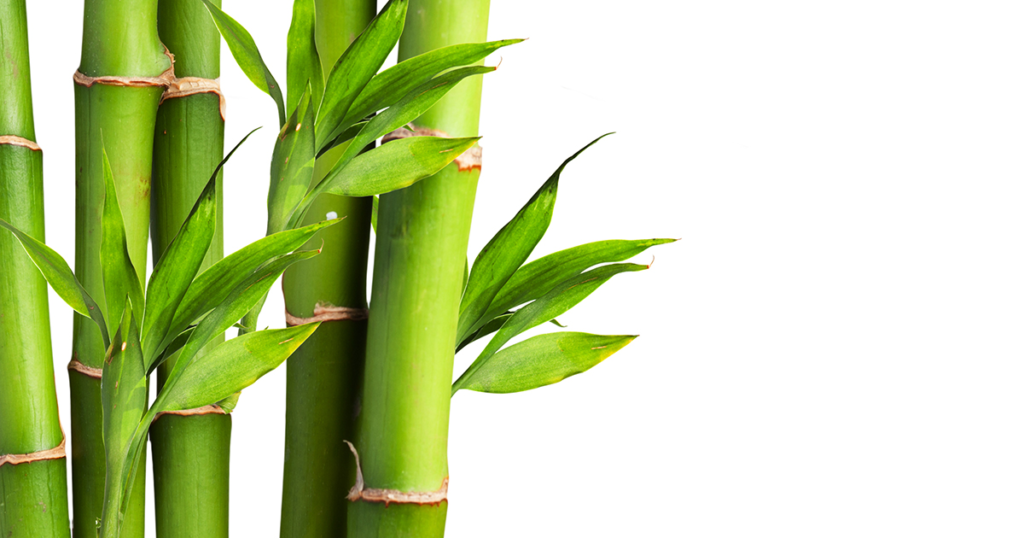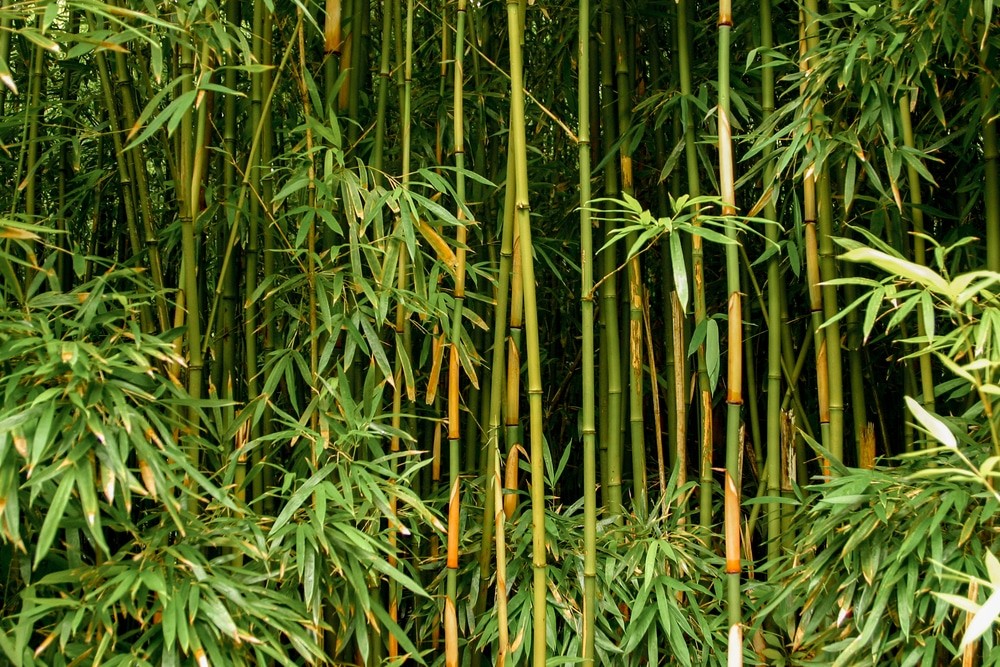When it comes to bamboo, there is always conflicting information as to whether or how toxic it is. Basically, there are species of bamboo that contain toxins, but the good news is that no species is deadly. Still, it should not be taken lightly if children or pets have accidentally eaten some of the bamboo. The concentration is not the same in all parts of the plant, especially young shoots in a raw state are of concern, but only problematic in larger quantities.
Contents
Ingredients
The bamboo has a complex composition of ingredients, many of which have not yet been described in detail. It is known, however, that the shoots in particular contain prussic acid. Prussic acid is a glycoside that can be lethal to both humans and animals. In addition, the plants contain some bitter substances and flavonoids. The flavonoids are not toxic and can be found in almost all plants.
Especially the hydrocyanic acid has a strong effect on the human body and can lead to the following symptoms:
- Shortness of breath
- Bitter almond odor on the breath
- Dizziness
- Vomiting
- Fainting
In animals, the symptoms are similar and poisoning is manifested mainly by dizziness and vomiting.
Note: The hydrocyanic acid glycoside is destroyed by cooking, leaving behind a bitter almond aroma. Other toxic bitter substances contained in bamboo plants can also be neutralized by cooking.
Caution with cats
Cats are known to love nibbling on fresh greens. The advantage is that the toxins it contains taste rather unpleasant, and only in rare cases do the animals actually catch such a high concentration that it poses a health hazard to them. With apartment cats it happens again and again that they eat bamboo plants, because they think it is cat grass. Therefore, caution is required, especially in this case. This also applies to dogs, which also eat the bamboo plants.
Those who buy bamboo plants for the home should consider the following:
- choose a non-toxic variety
- plant should be organically cultivated
- bamboo should be from a domestic cultivation
In this case, it does not matter if a dog or cat eats the plants. However, they should still not eat them in large quantities. Pet owners should always provide suitable alternatives, because this way they not only do not go to the bamboo, but also spare other houseplants.
For safety, grids can be placed around the plants, especially during the time when they sprout or form seeds. In this country, bamboo plants rarely form flowers and fruits, but even the seeds of otherwise harmless species can be poisonous.
Children and bamboo plants

Even with pets, it is rare that anything actually gets into the digestive tract from the bamboo plants. It is similar with children, who may taste a small piece, but that is usually it. The reason is that prussic acid has a bitter and unpleasant taste when raw. Therefore, it is not uncommon for children to spit out small pieces right away because they simply do not like the taste of bamboo.
In fact, some types of bamboo would even be edible. Some may be familiar with bamboo shoots from Asian dishes. In cooked form, even the bamboo shoots are no longer poisonous. This is because heating decomposes the prussic acid and what remains is a slight almond aroma. However, children and pets usually come into contact with the raw plants. This is not yet a problem as long as the plant remains unharmed. The prussic acid is actually a feeding protection for the bamboo plants and is only formed when the bark is injured.
First aid
Even if it is very unlikely that a child or pet will consume plant parts from the bamboo in a dangerous concentration, it is not impossible that something will still enter their digestive tract. If this is the case, or if it is suspected that plant parts have been consumed, parents should first and foremost remain calm. Smaller quantities can be processed by the body without any problems, but for larger quantities the rescue chain must be activated.
Initially, animals and children should be observed once to see how they react. Hydrogen cyanide is in itself a relatively fast-acting toxin, which means that initial symptoms such as respiratory distress would show up very quickly. In this case, the following first aid measures are taken:
- Keep airways clear
- Remove vomit from the oral cavity
- Place human/animal in a stable lateral position
- Activate rescue chain – for humans: Call emergency physician/for animals: Contact veterinarian
- if possible, check how much plant material has been consumed
Note: There is a stable lateral position not only for humans, but also for animals. Similar to humans, it ensures that the airways remain clear.
If there are no reactions even after a few hours, there is no danger. Parents and pet owners who nevertheless want to be sure can contact their family doctor or pediatrician and, in the case of pets, their veterinarian and discuss the further procedure.
However, parents should be cautious if a child has pre-existing conditions. This also applies to pets with general health problems or chronic diseases. In such cases, you should act immediately and, if necessary, contact the doctor in the case of a child or visit the veterinarian with a pet.
Conclusion do not ban the bamboo plants
A child as well as a dog or a cat can cope very well with a bamboo. Therefore, you do not have to banish it from the apartment or garden. In spring, you can also check the shoots for damage, as this is an indication that animals may have eaten them. In addition, prussic acid escapes more frequently from these injured areas, which is why you should not touch the injury until the plant has regenerated and the wound has closed.
To avoid danger in the first place, you should already pay attention to suitable species when buying. These include, for example:
- Chinese Wonder
- Blue Dragon
- Fresh Green
The “Blue Dragon” variety is even listed as edible. However, even if a variety is not poisonous, it should not necessarily be eaten. There is often a lack of expertise in how to prepare the plants. After all, it is only through proper preparation that some bamboo varieties can be eaten.
Tip: Anyone who already has bamboo plants in their garden and is not sure whether they are a questionable or harmless variety should have them identified. Experts can be found in well-stocked perennial nurseries, for example.
Even if dogs or cats as well as children catch more than one leaf of the bamboo, this is usually also no problem, since it is only weakly poisonous. This is also shown by the statistics, because so far there are no verifiable deaths due to poisoning by bambo. This makes coexistence with the bamboo not dangerous.
Note: The content of ingredients can vary, influenced by different factors. These include, for example, the climate or the location, which can favor a more or less high concentration of prussic acid, which is why a low concentration can occasionally be detected even in species that are not toxic per se.
In the dried state, as in the form of bamboo sticks, it generally no longer poses a danger, since the toxin has already been degraded. In this case, even the dog can chew on a bamboo stick without hesitation.


